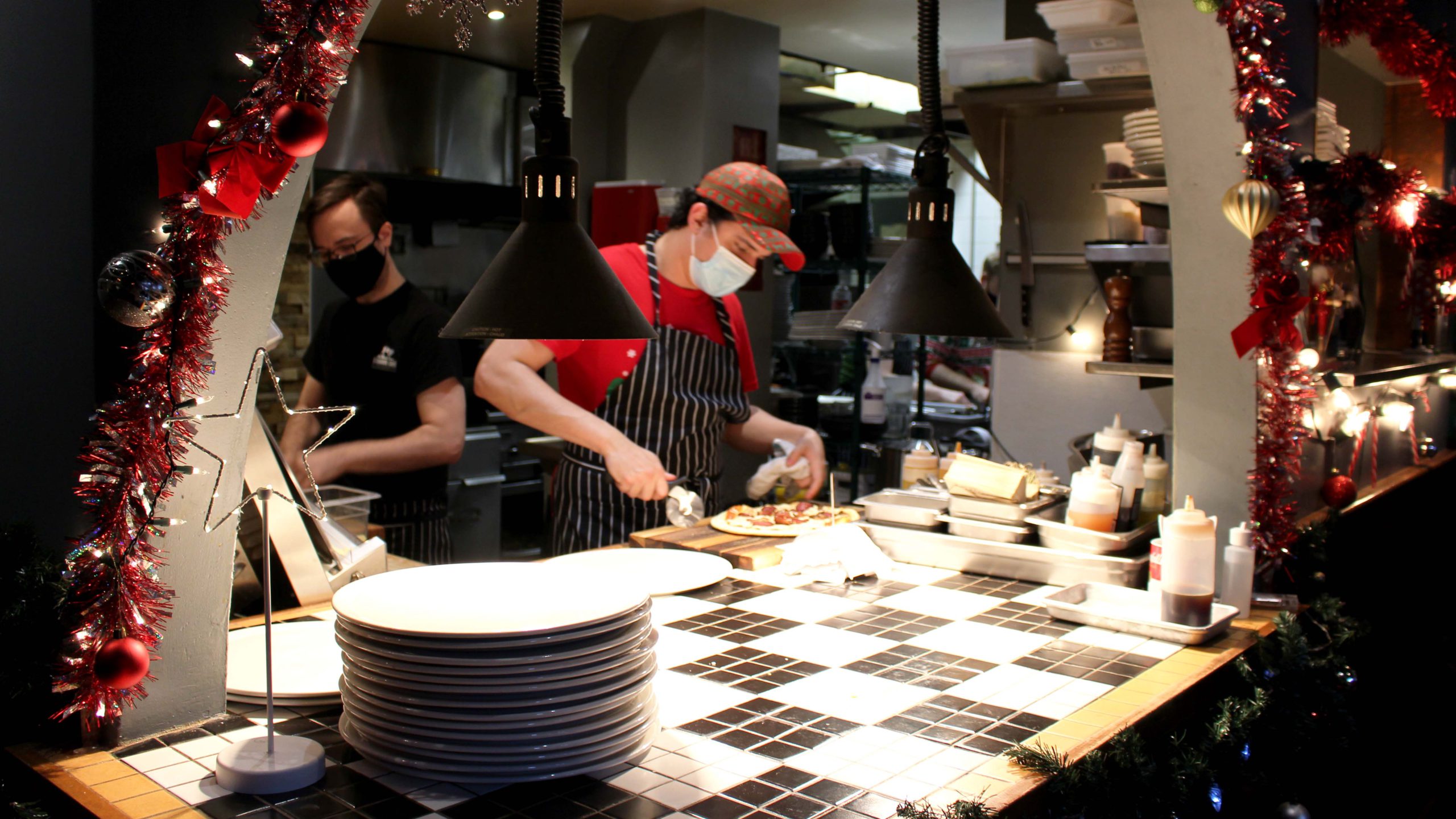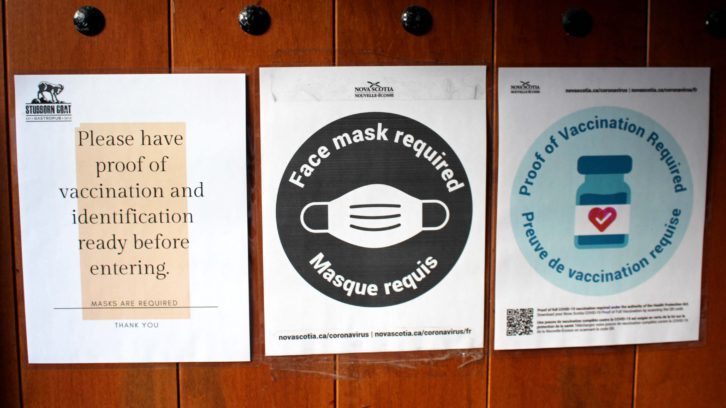Restaurants seek international workers to relieve staffing shortages
New policies a 'huge sigh of relief' for restaurant owners

caption
Kitchen staff prepare meals on Saturday at the Stubborn Goat in Halifax, a restaurant owned by Geir Simensen and Joe McGuinness.Restaurant owners are relieved after the province made it easier for them to hire international workers and address staffing shortages created by the COVID-19 pandemic.
“The biggest challenge right now, or one of the biggest challenges right now for restaurants would be the labour shortage issue,” said Natasha Chestnut, association and marketing administrator for the Restaurant Association of Nova Scotia.
In a release earlier this month, the province said they are adding “food counter attendants, kitchen helpers, related support occupations, food and beverage servers and light duty cleaners” to the occupations in demand stream of immigration.
This makes it easier for restaurants to bring in the skilled international workers they need by eliminating some of the existing barriers, such as filing labour market impact assessments. These workers now won’t have to wait six months before applying to the Nova Scotia’s Provincial Nominee Program. Related stories
Geir Simensen and Joe McGuinness are behind Legendary Hospitality, which owns multiple restaurants in Halifax, including Salt Yard Social, a seasonal restaurant that opened on the waterfront earlier this summer.
Simensen and McGuinness were delayed in opening the new location and closed a month early due to staffing shortages.
“I think what’s happened with each lockdown is that it’s been more and more people that have just been like, maybe the food industry isn’t for me,” Simensen said.
The pair also own the Stubborn Goat, Antojo Tacos + Tequila, Durty Nelly’s and the Rooftop.
Simensen applauded the changes.
“You know, that’s exactly what we need. Well, I mean, if the local workforce isn’t here, it’s not all of a sudden just going to happen. So, you know, we have a lot of people that would love to move to Canada and if we have the work then let’s bring them in,” Simensen said.

caption
Posters remind customers to wear masks and provide proof of vaccinations outside the Stubborn Goat Gastropub on Nov. 27.Restaurant workers have faced difficult situations during the pandemic, dealing with customers who refuse to wear masks or follow safety precautions.
“At a time when we should all be coming together and being nice, there’s definitely some that have taken it out on this industry, and that’s unfortunate,” Simensen said.
Daphne Poy, a server and bartender at the Brown Hound Public House, said they left the industry due to stress, harassment and overwork. Part of their job was enforcing the continually changing COVID protocols in the workplace, something they found difficult.
“I think it’s so hard for people to realize that, like, people who work in customer service are also humans … that they are not just … service robots,” they said.
Poy has since returned to the restaurant industry, working for Almonak and Kyo Kitchen & Bar.

caption
Customers dine at the Stubborn Goat Gastropub on Saturday.Andrew Stevens, manager of the school of business and creative industries at Nova Scotia Community College, said there is no shortage of jobs available for graduates of hospitality programs in the province.
“Even pre-pandemic, the demand for skilled labour in restaurants, in hospitality and food service was more than the number of graduates that the college is able to support,” he said.
The college works with the restaurant association and other organizations to ensure programs adapt to meet the needs of the workforce, Stevens said.
Phase five of the province’s COVID-19 re-opening plan allows restaurants to operate at full capacity with minimal restrictions, but many struggle to do so without a full staff.
“I am working on staffing for next summer, that’s my full-time gig right now, because on the waterfront we are going to need to hire about 160 people. So, I’m a little terrified about that, to be quite honest,” Simensen said. He is working to bring in 10 to 12 international workers to his restaurants.
Bill Pratt, owner of 21 restaurants in the region, said that none of his businesses are operating on a full-time basis due to staffing shortages.
“I think the announcement was great news. But like during COVID, we had a lot of great news, but it took weeks and months to get it. We don’t have weeks and months,” he said.
Pratt is also looking to bring in international workers into his restaurants. He said bringing in these workers is necessary for the continuation of his businesses.
The restaurant association also backs the changes.
“Anything we can do to make recruitment easier and more streamlined for the restaurants will be helpful. Seeing the changes with the immigration program should open up some doors and help with the recruitment struggles that restaurants are having,” Chestnut said.
“It will not solve it entirely, but I think it’s a good step and it’s going to be helpful.”


H
Haligonian
F
Frank
P
Phebian
J
James
Y
Yanick
A
Angry Disabled Person
B
Bob the activist
M
Michele